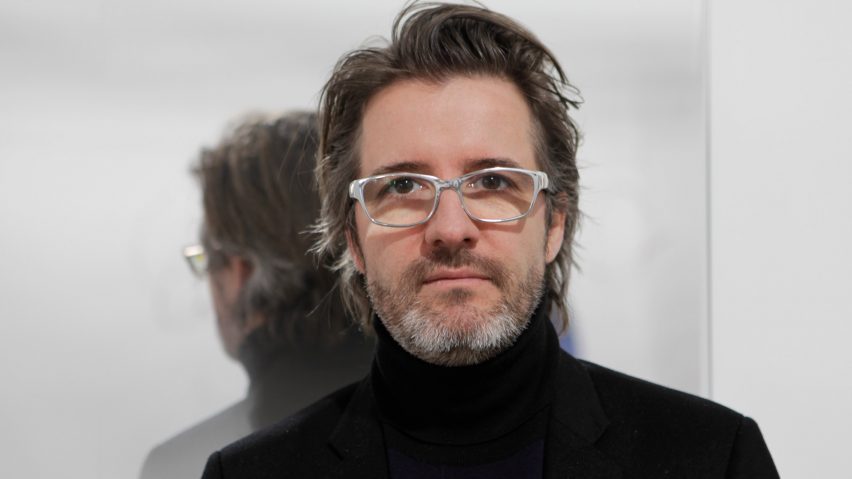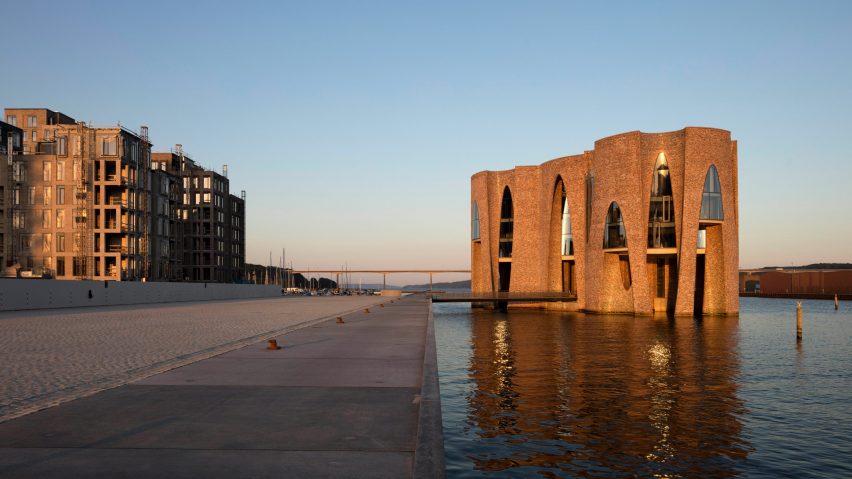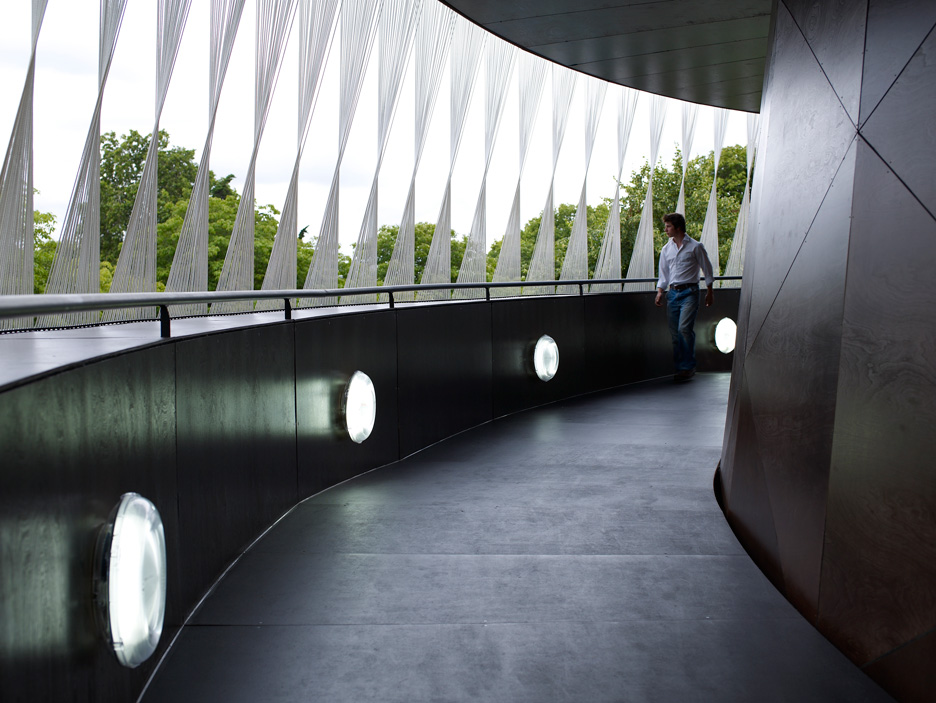
Culture "is now used just to promote" says Olafur Eliasson
Governments are using culture purely as a promotional tool rather than recognising its social value – and this is contributing to the rise of popularism, according to artist Olafur Eliasson.
States are exploiting culture for commercial gain, the artist told Dezeen, while failing to recognise culture's role in forging communities and shared values.
"The cultural ministry has become an extension of the export ministry and has failed to maintain culture," Eliasson said. "It is now used just to promote."
The Danish-Icelandic artist, who is currently based in Berlin, spoke to Dezeen at the opening of his first building in Denmark last month.
He claimed that European governments are neglecting culture as they see the sector as solely a means of promotion.
Public sector's use of culture is "promotional"
"The public sector's use of the culture sector has become more or less a promotional one," said Eliasson.
"It has failed to acknowledge that the cultural sector is the one that drives civic trust and social self-confidence. It is the culture that we have that gives us our shared identity."

The lack of attention being paid to creating a meaningful culture sector is leading to a loss of identity and contributing to the rise of popularism around the world, Eliasson said.
"Of course being an artist I say this, but I actually mean it quite seriously, because what gives society its gravity if not the cultural identity?" he said.
"The most and strongest muscle against popularism and polarisation is of course a strong sense of identity."
"Every finance minister should train by being a culture minister"
Eliasson is one of the world's most successful living artists. He has created installations across Europe including creating a giant waterfall at Palace of Versailles, and installing a rock filled landscape into Denmark's Louisiana Museum of Modern Art.
He has also worked on several architecture projects. As well as his new project in Denmark, he designed the Cirkelbroen bridge in Copenhagen and the facade of the facade of the Harpa concert hall in Reykjavík
Eliasson believes that artists should be more heavily involved in all areas of society and that culture should be given more importance in governments.
"I think generally I would like to see more artists being less marginalised and more drawn into the structure of our society," he said.
One radical proposal the artist has to increase the awareness of the importance of culture in government is for those in control of the money to be required to have a working understanding of the cultural sector.
"I think that every finance minister should train by being a culture minister," said Eliasson. "One should make it a rule that if you have not been culture minister you can simply not be finance minister."
Public cultural institutions "failed" when Brexit happened
Eliasson, who has worked extensively in the UK – most notably with The Weather Project at Tate Modern and the Serpentine Pavilion in 2007 – believes that the focus on cultural promotion contributed to Brexit in the UK.
"When Brexit happened... I think it's fair to claim that the public cultural institutions failed in their responsibility when they allowed that to happen," he said.

This is partly due to the fact that responsibility for the cultural sector is being left to non-governmental organisations in the UK, said the artist.
"It is as if the public institutions and the public sector rely on lottery funding to handle the gravity of cultural identity," he added.
"Gloomy future" for Tate Modern
Given the lack of priority given to the cultural sector by the government and the popularism that led to Brexit, Eliasson also sees difficult times ahead for the UK's leading art institutions.
"If the popularism in the spirit of Brexit continues in England, I see a gloomy future for what are now leading global museums, like the Tate Modern," said Eliasson.
"I'm afraid that they are going to struggle to take on a leading position in a country where the government shows very little confidence in the importance of the role of culture and art."